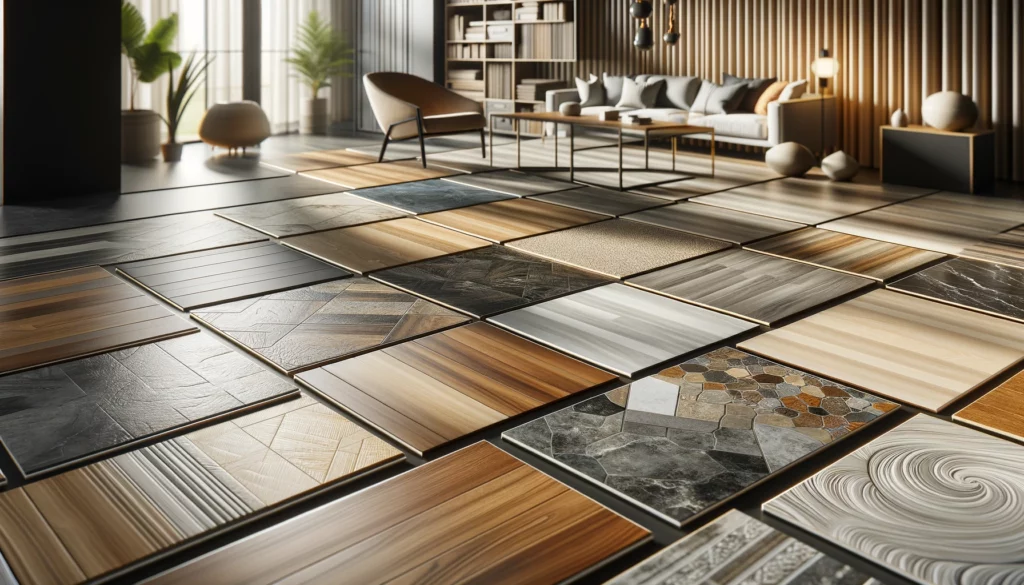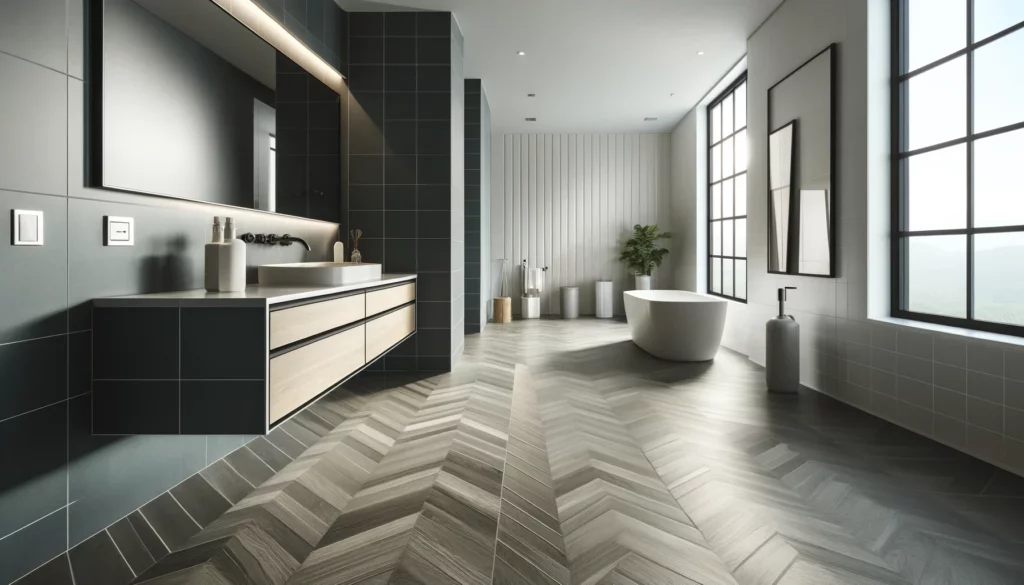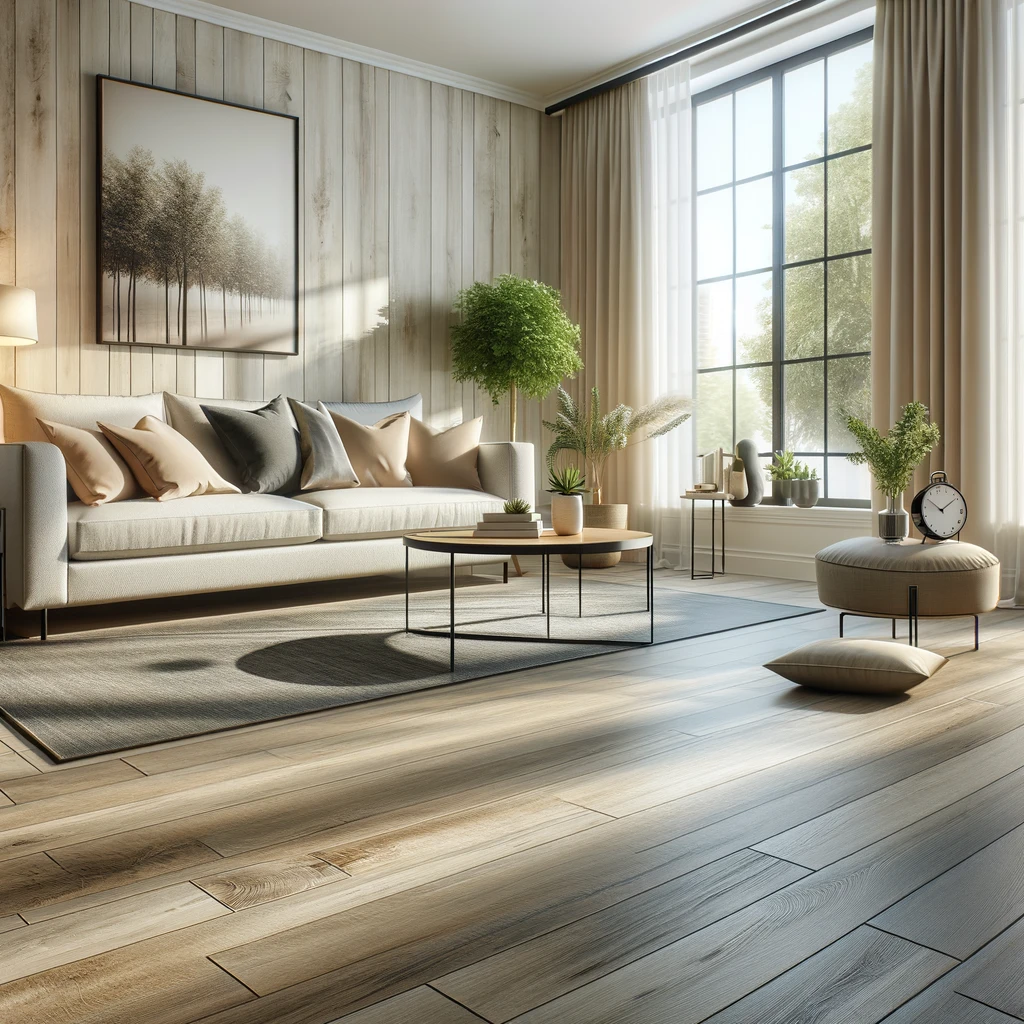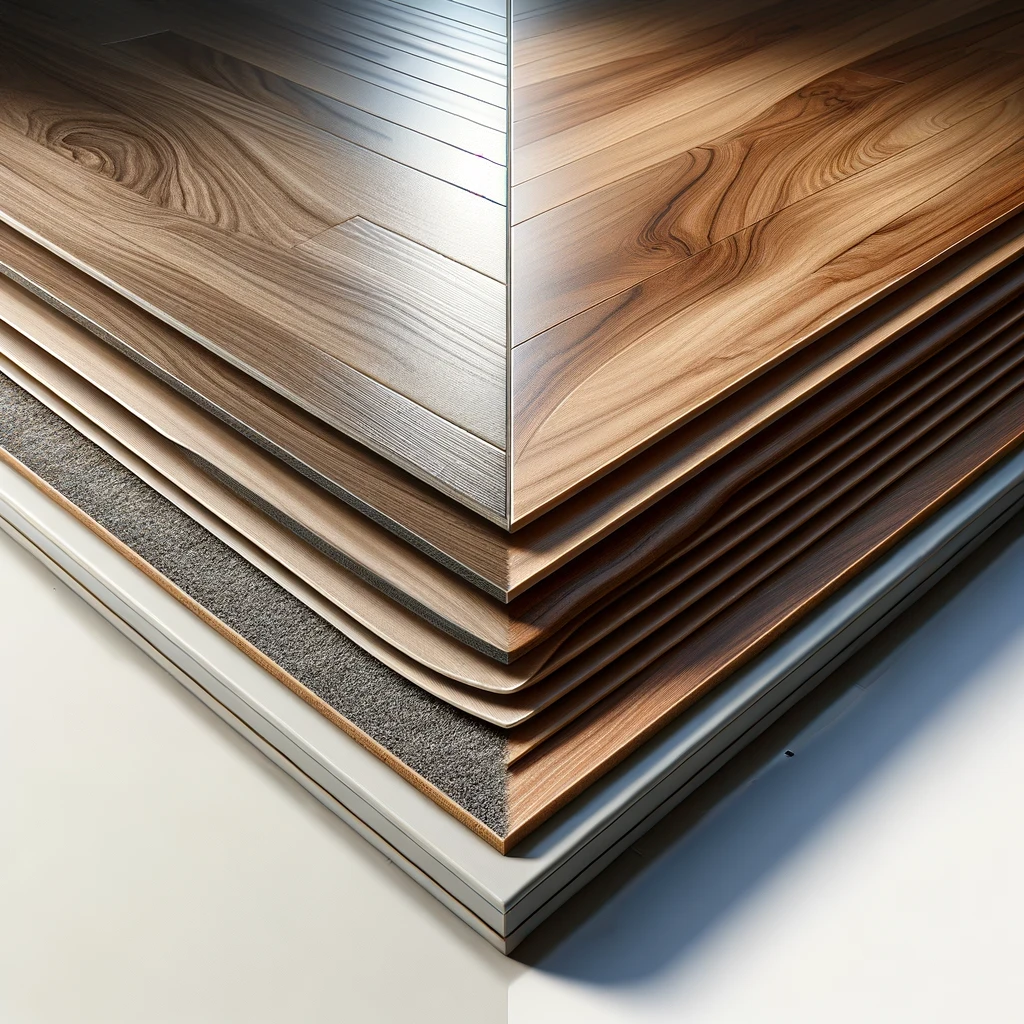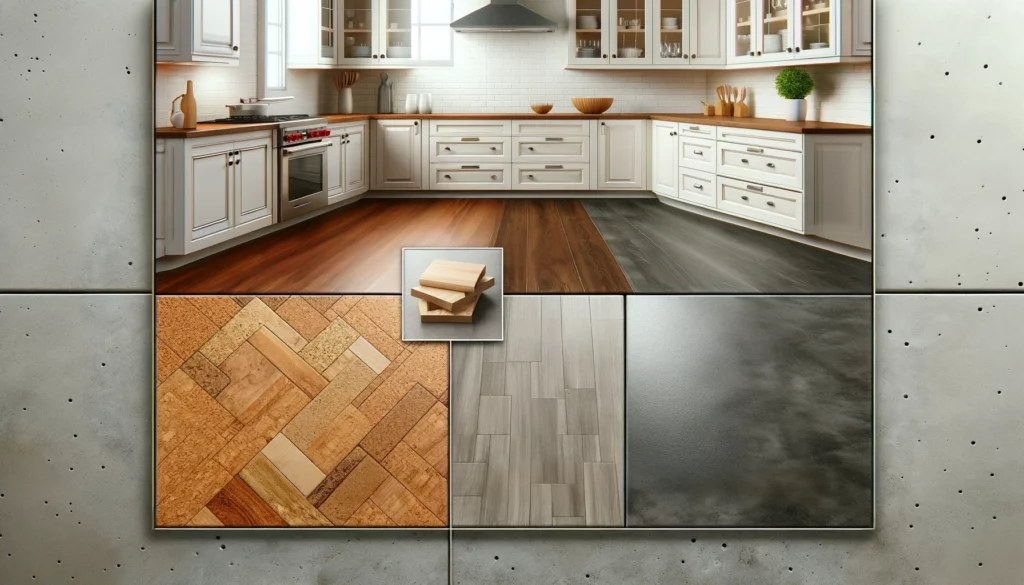The journey of Vinyl flooring: starting from commercial spaces to homes in a super modern way | Pros and Cons of Vinyl Flooring
That same dream kitchen renovation? You fantasized in your head about having smooth countertops, shiny appliances and maybe some beautiful backsplashes. But what about the floor? But with so many options out there, the wide selection of styles—from timeless hardwood to modern tile—can be overwhelming. And then there’s vinyl flooring — a product that has, very silently, but quite surely revolutionized the floor covering industry from its original function in other market sectors to practically a must-have alternative for many modern residential and business spaces.
Vinyl flooring, think elementary school or hospital shows space — has made leaps in recent years. Those in the know saw it coming. It’s a very appealing balance of use and value we find hard to argue against.
Vinyl flooring is rooted in versatility and strength. Originally, sheet vinyl was king of the hill, able to spread easily across expanses of rooms. Its durability and impermeability to moisture, stains, etc. made it an attractive choice on account of easy clean up_true fact — kids coming in from muddy soccer games could do no damage! This made it well-suited for more challenging environments. But choices for sheet vinyl were limited, and typically didn’t provide the same level of style and sophistication that homeowners desire.
Enter vinyl plank flooring. It was a modern new development in the vinyl world that added stark realism and class. Every plank is engineered to give the exact look and feel of traditional materials like hardwood, tile as well as even stone. The design of this is also endless, from rustic woods to contemporary sleek patterns. For homeowners who have wanted both a beautiful and durable floor covering, this is making all the difference.
For detailed information about home flooring, don’t miss our Flooring Face-Off: What is the Most Popular Flooring in 2024
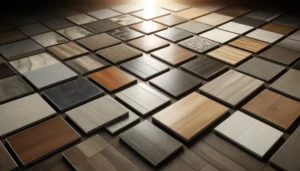
Vinyl Flooring Is a Contemporary Flooring Choice and Its Advantages
Vinyl flooring is certainly deserving to be a popular choice in the floor covering industry. And for good reason, it pairs also one of the most practical benefits in broad end-use applications with aesthetic versatility. In this blog, we will highlight the main benefits of vinyl flooring that are making it such a popular choice among homeowners now.
Affordability
The big benefit you get with vinyl flooring, however, is that it is inexpensive and no longer a choice of last resort. There are benefits of using vinyl if you want to save money as well, Vinyl flooring is usually available at less cost than another age-old material like hardwood or tile. This is especially the case when installation costs are taken account for—something that can greatly influence how much a flooring project ends up costing. Many vinyl plank flooring options are installed using a click-lock installation system which allows you to DIY this project and save money on labor costs.
Durability
Vintage vinyl flooring may as well be the poster child for this quality. It is scratch, dent and stain resistance which makes it a great option for high traffic areas such as kitchens, hallways and living rooms. It is resistant to the wear and tear of daily life such as spills, pet accidents, heavy furniture. The durability it brings makes your flooring last longer too, so it is a good investment.
Water Resistant and Completely Water Proof Solutions
Water resistance is a huge attraction when it comes to vinyl flooring. This is critical in places which are the most likely to get spills or moist, for example, kitchens the washrooms and cellar areas. Some vinyl flooring is even fully waterproof, making it a worry-free option for these high-demand environments. This waterproof ability comes with a distinct advantage over other in-demand flooring options such as hardwood and laminate where water is their bane.
Ease of Installation
In addition to being cost-effective, vinyl flooring is an option homeowners can install themselves — making it a fun and rewarding DIY project for the weekend warrior. Most vinyl flooring is designed with a click-lock system, but not all of those systems are created equally and many may swell if exposed to moisture. This ease of use makes it a great choice if you are looking to cut the expensive professional installation option out.
Low Maintenance
Easy-care vinyl flooring Cleaning should become less of a sweat, since all you need to do is sweep or vacuum once in a while and mop the tiles with no-rinse mild detergent. GEMCORE never needs sealing and cleaning is mostly low-maintenance, including high-quality, environmentally safe formulas that are not common for flooring this durable.
Comfort
Vinyl Unlike hard surfaces such as tile and hardwood, vinyl is softer beneath your feet. This is especially nice in places you loiter, like a kitchen or laundry room. On top of that, vinyl is warmer to the touch than other types of flooring which can make your space more inviting and provides a softer feel underfoot.
Variety of Styles and Designs
Vinyl flooring comes in an amazing variety of forms replicating everything from wood grain to pebbles, even yarn and wool. Vinyl flooring offers a range of desirable looks, whether you want the traditional warmth of hardwood, elegant stone or cement. This makes them versatile and non-obtrusive, enabling you to maintain a contemporary look throughout your home.
Vinyl flooring is undoubtedly advantageous; hence, many homeowners see it as a scary-good option because of its equilibrium between functionality and cost-effectiveness on top style. However, much as with any flooring choice, it is important to also take into account its problems. We will dive deep into these disadvantages in the following section giving a holistic opinion and helping you decide whether to go for vinyl flooring on your home.
The Cons of Vinyl Flooring: A Fair and Balanced Analysis
Even though fancy has many benefits, this style of flooring may also have some disadvantages, so we find there are several things to consider before reaching a decision. As with all flooring products, vinyl too has its limitations.
Durability Concerns
Vinyl flooring, while durable, is not indestructible. So Backpacks Wear Well Over Time, but It Can Dent or Scratch Compared With Hardwood & Tile. The surface is susceptible to marking -from sharp instruments, from the legs of heavy furniture and from pet claws. GCC Page Speed Update 1 of 3 This is one thing to think about if the area where you are in traffic or home with a pet.
Sunlight Sensitivity
When directly exposed to sunlight for long periods of time, all types of vinyl flooring, including the RV version used in this unit can become faded or discolored. Especially, if you have rooms with big glass windows receiving a lot of sunlight in the day. You can also protect and preserve your stunning vinyl-flooring by using blinds or curtains to shield the floor from direct sunlight.
Limited Acoustic Insulation
Vinyl does not offer the soundproofing qualities that carpets, or other flooring materials with thicker padding do. This allows sound to be transmitted more efficiently across the surface, and subsequently causing rooms to become nosier. For added sound absorption, install an underlayment beneath the vinyl tile further and apply nanolemtic coating if noise is a concern ( such as in living rooms or bedrooms).
Potential for VOC Emissions
Older or less regulated varieties of vinyl flooring can release chemicals called volatile organic compounds (VOCs). VOCs are chemicals that can off-gas into the air in your home and likely make you sick to some degree if they get sucked into your nasal passages. Latest vinyl flooring options are typically produced with the lower Volatile Organic Compound (VOC) emissions, however it’s suggested to verify product specifications and buy possibilities with low or no VOCs.
Repair Challenges
Damaged vinyl flooring could be harder to repair than hardwood or tile floor. If a defect is discovered, the plank as a whole may need to be replaced which can be somewhat labor intensive and often more expensive.
So while it is a really nice option of flooring to go with and has attractive benefits associated with it, there are things you need to know. This sort of perspective will allow you to determine if vinyl flooring is the best fit for your home and lifestyle.
So, evaluate your own priorities and go through the list above before you settle on new flooring for your home or business.
Different Types and Variations of Vinyl Flooring
The extraordinary increases in the world of vinyl flooring that have attracted a variety of trained professionals and architects for their wide-reaching applications. While sheet vinyl is the best for a continuous floor, most of our interest has gone toward vinyl plank flooring (VPF)—which can mimic wood and actually provides fine-looking imitations of stained wood footboards; within VPF are two types featuring an entirely different install technology. So my say is to know these variations and decide according your flooring needs.
Luxury Vinyl Tile (LVT)
LVT — Luxury Vinyl PlanksAnother favorite in the luxury vinyl category, LVT has exploded onto floors everywhere for its super-realistic appearance and layered construction (more on that below) that makes it impressively durable. It consists of several different layers, which include a wear layer to protect the surface from scratches and stains, a decorative layer that replicates natural materials in stone or wood looks and a core base for structure support. LVT includes a variety of styles from wood and stone to selections that bear close resemblance with tile
Pros of LVT:
- Large number of designs possible for the same, highly realistic appearance
- Scratch and stain resistant for long lasting protection
- Water proof (or at least water resistant )
- Quick easy installation through click-lock systems
- Relatively affordable
Cons of LVT:
- Not as thick or solid feeling as some other vinyl flooring choices.
- Heavy Furniture Weight: Although sturdy, can be subject to denting
Wood Plastic Composite (WPC)
WPC vinyl flooring is a mix of wood and plastic, in the case of human society WPC would be the new material of economy. Due to its thicker core, some might know it for being firmer and more stable underfoot. This density also means that it has acoustic insulation properties not matched by any other form of hardwood flooring. WPC flooring comes in a few different style, all primarily wood plank designs.
Pros of WPC:
- Impression of thickness and solidity compared to LVT
Better sound insulation - Typically has a more real wood-look aesthetic
- This comes water-resistant, but some are waterproof.
Cons of WPC:
- More costly than LVT
- Limited design flexibility relative to LVT
Stone Plastic Composite (SPC)
SPC vinyl flooring has a rigid core which is composed of stone powder and PVC to create a solid base. This results in a material that is extremely strong and rigid, with very good resistance against temperature changes which leads to warping and expansion. One of the advantages that SPC flooring offers is a level of scratch and impact resistance perfect for high-traffic areas. It is also the one frequently confused with being completely water-proofed compared to LVT or WPC — not always so.
Pros of SPC:
- Very tough- Its scratchproof, dent resistant and wont warp
Usually has click-lock installation system - Superior water resistance
Cons of SPC:
- More expensive than LVT or WPC
- Feels less luxe and soft underfoot than LVT or WPC
Different Types of Vinyl Flooring cater to different needs & preferences. Perceived value-wise, when it comes to LVT as well as SPC flooring options, there is a sense of being spoilt for choice with each type getting its fair share of advantages and disadvantages. To read the installation next, and then to figure out how DIY stacks up to full-service installations.
How to Maintain and Care for Your Vinyl Flooring
While vinyl flooring is a reasonably low-maintenance material, just a little care and cleaning goes a very long way to keeping it in good shape and looking its best for years (or decades) to come! If you maintain a few simple cleaning and maintenance routines, your vinyl floors will keep both their shine and durability.
Clean or Vacuum regularly
Vinyl Flooring Care: The Basics Every Time There are a few things that you can do every time to posses your vinyl flooring looking great. The surface should be swept or vacuumed regularly to remove things like dirt, dust, and other debris that can potentially scratch the finish. To prevent it getting damages you have to use a soft-bristled brush attachment on your vacuum.
Damp Mopping
Damp Mopping Damp mopping is another important routine. Damp mop with a mild detergent for vinyl floor. Do not use harsh chemicals or abrasive cleaners, which might strip the protective finish and impair with the planks. Ensure to always wring out your mop thoroughly, as too much water could penetrate into the seams or underlayment.
How To Maintain A Vinyl Flooring
This will also help it last longer as keeping your vinyl clean and looking good with these care measures will ensure that the new flooring lasts its expected life.
- Use felt pads or furniture glides under furniture to protect it from scratches and dents.
- Pointed Item Warning: Avoid making a careless mistake towards sharp object which may cause dent or scratch onto the surface. Be careful when dragging furniture and placing sharp objects on the floor.
- Prevent Spills: Dry spills immediately to avoid stains. Clean With A Soft Cloth And Gentle Cleaner to Prevent From Damaging The Finish
Addressing Minor Damage
Most of the time these are just minor scratches and dents that can be taken care of using some basic methods.
- Dings: As for dents, you can buff out any knocks and hard slips with a vinyl floor polish or wax that will fill in small scratches.
- Dents: In many cases, you may be able to use a heat gun or hair dryer on low power and gently warm the dented area up in order to work some of the dents away. Make sure to test in an inconspicuous area first to ensure it won’t damage the flooring.
Professional Cleaning
For tougher stains or cleaning problems you might want to get a professional vinyl floor care service, Special cleaners have the proper equipment and skills to scrub your floors down into every last groove, returning them back to their best shine.
By regularly cleaning and preventing your vinyl flooring, you can preserve its appearance and durability. Regular maintenance goes a long way in ensuring that your vinyl floors retain their appearance for years to come.
Vinyl Flooring FAQs
Is vinyl flooring waterproof?
Now, while many vinyls can handle moisture well, not all are truly waterproof. While luxury vinyl planks can generally be considered waterproof, it’s important to double check the product specs to make sure the specific LVP flooring you choose is waterproof. Even though the top layer of the flooring is waterproof, the subfloor can be damaged by standing water if left for a long period.
How long does vinyl flooring stay on?
Vinyl flooring, if looked after correctly, can last anywhere from 10-20+ years, and sometimes even more. However, factors such as traffic, sunlight exposure, and even the quality of the product and installation can also regulate how long it lasts.
Should a more traditional vinyl flooring be good enough for pet owners?
For pet owners, vinyl flooring is an excellent choice since it is quite durable and resistant to water. It is not likely to be easily scratched, dented or stained, which so frequently occurs with pet related damage. Just be careful with those razor sharp claws and watch for any signs of a potential puncture damage.
